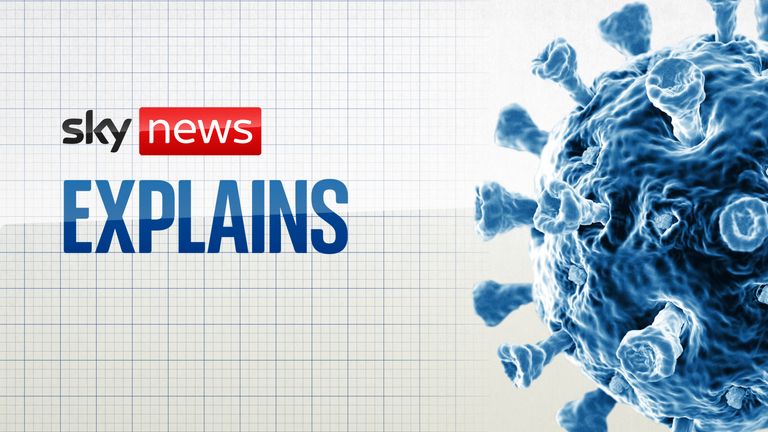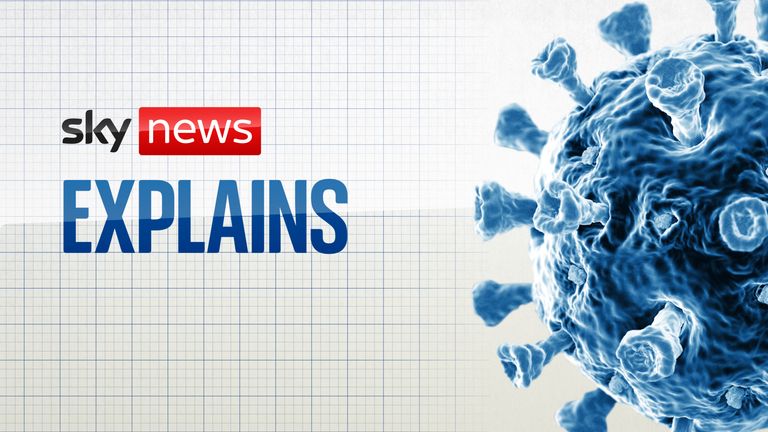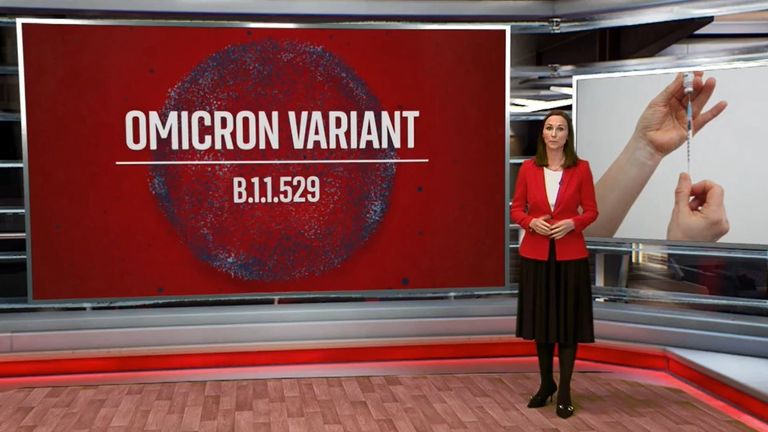
Approximately one in 100 patients hospitalised with COVID-19 develop complications of the central nervous system, according to a new study which urges quicker brain imaging for patients.
Strokes and brain haemorrhages are among the potentially fatal complications linked to COVID-19 by what has been described as the largest multi-institutional international study of its kind to date.
The research is being presented on Tuesday at the annual meeting of the Radiological Society of North America (RSNA).
Live COVID updates from UK and around the world
“Much has been written about the overall pulmonary [lung] problems related to COVID-19, but we do not often talk about the other organs that can be affected,” said Professor Scott Faro.
“Our study shows that central nervous system complications represent a significant cause of morbidity and mortality in this devastating pandemic,” warned the lead author.
Professor Faro began his investigation after discovering that there were only a relatively small number of cases providing the basis for most of the existing literature of central nervous system complications in COVID-19 patients in hospital.
Alongside his colleagues he analysed nearly 40,000 cases of hospital patients – admitted between September 2019 and June 2020 – who had tested positive for the virus in seven US and four western European university hospitals.
Of the data the team had access to, the patients had an average age of 66 and there were twice as many men as there were women.
For all of these patients the most common cause of admission to hospital was confusion and altered mental state, followed by fever, and many of them had other issues including hypertension, cardiac disease, and diabetes.
Of the cases they analysed they found 442 acute neuroimaging findings that they said were most likely associated with the viral infection, amounting to a 1.2% incident rate across the large patient group.
“Of all the inpatients who had imaging such as MRI or a CT scan of brain, the exam was positive approximately 10% of the time,” Prof Faro said.
“The incidence of 1.2% means that a little more than one in 100 patients admitted to the hospital with COVID-19 are going to have a brain problem of some sort,” he warned.
Follow the Daily podcast on Apple Podcasts, Google Podcasts, Spotify, Spreaker
Of these problems, the most common complication was ischemic stroke, with an incidence of 6.2%, followed by intracranial haemorrhage at 3.72% and then encephalitis at 0.47% – referring to an inflammation of the brain.
“The researchers also discovered a small percentage of unusual findings, such as acute disseminating encephalomyelitis, an inflammation of the brain and spinal cord, and posterior reversible encephalopathy syndrome, a syndrome that mimics many of the symptoms of a stroke,” according to the RSNA.
“It is important to know an accurate incidence of all the major central nervous system complications,” Prof Faro said, adding: “There should probably be a low threshold to order brain imaging for patients with COVID-19.”







More Stories
5 Reasons Why Everyone Should Look Forward to Save Earth Mission’s Takeoff Event
Save Earth Mission’s Takeoff Event Countdown Starts: Get Ready to Witness History
The Save Earth Mission: A Global Movement Towards a Sustainable Future